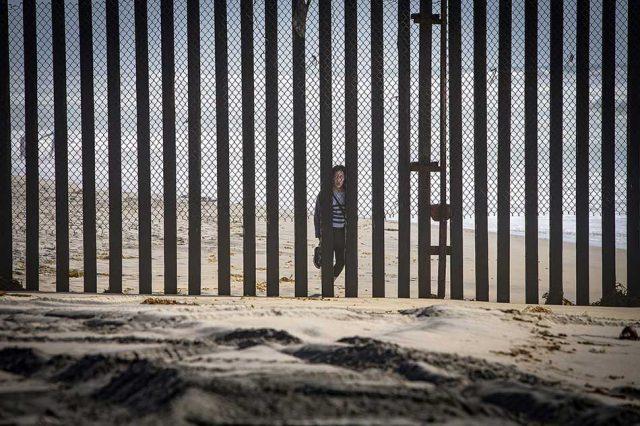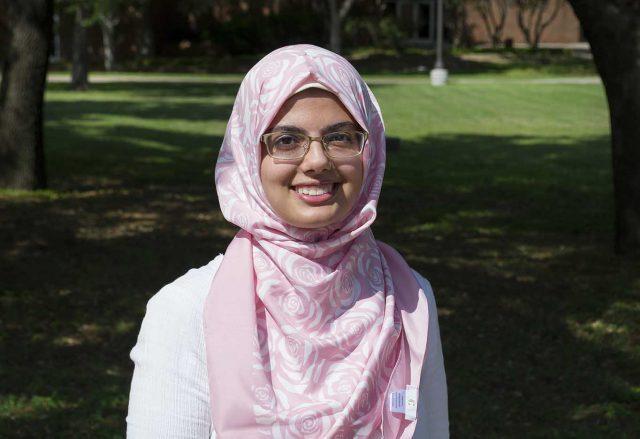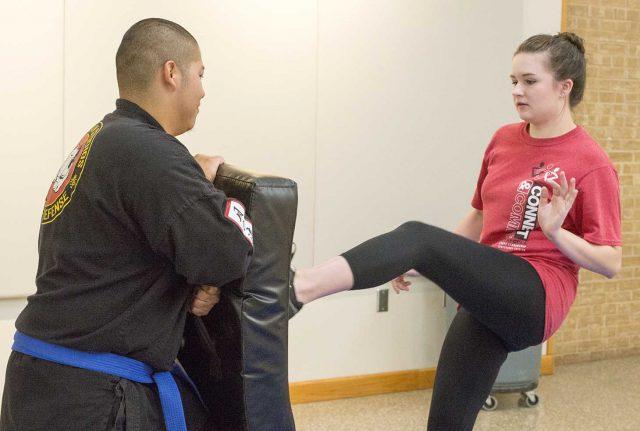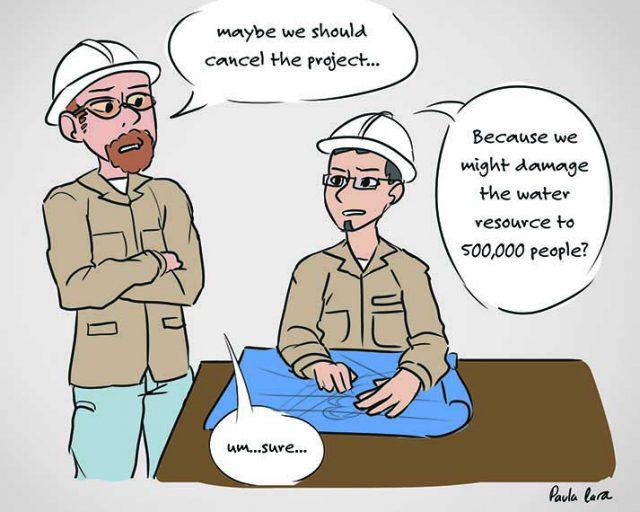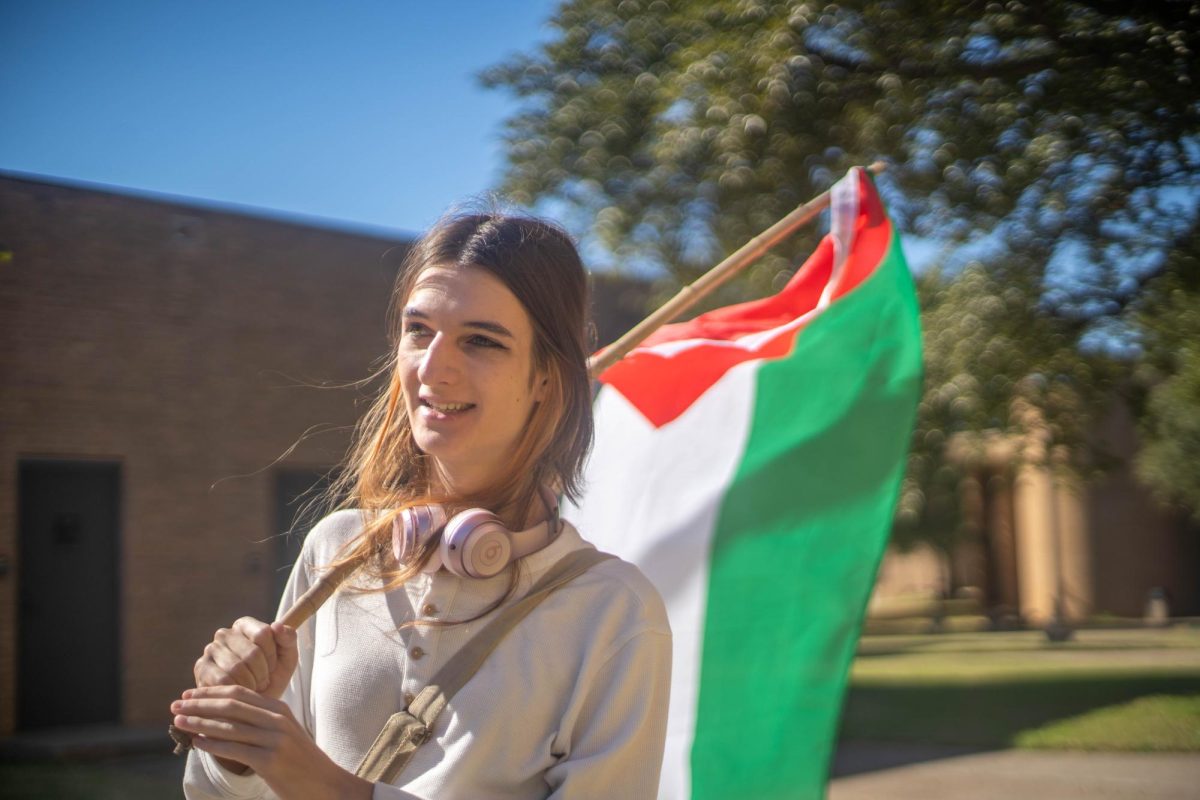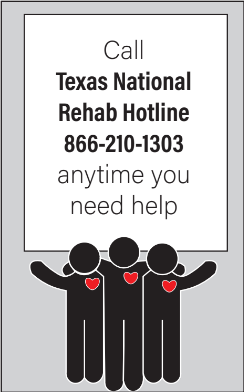By Isabelle Zhu/reporter
Mary, a NE student, woke up at 5 a.m. She held her back, got off the bed and walked to the kitchen. She put strawberries, a banana and Greek yogurt in the blender to make a smoothie and then made pancakes for her husband, Jose. After breakfast, she cleaned up the table.
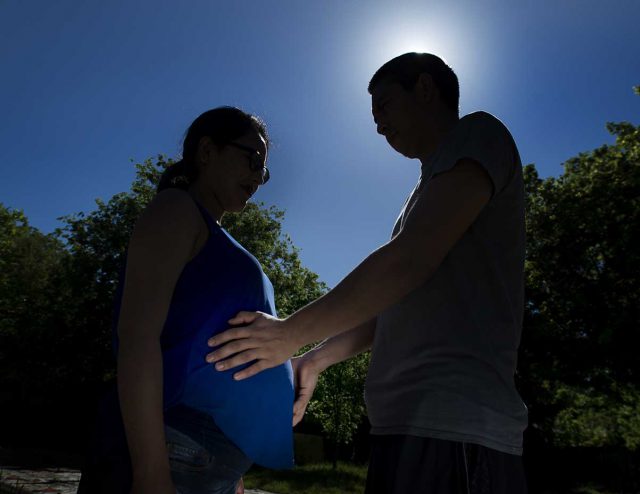
Photo by Peter Matthews/The Collegian
After Jose left, she started working on her school assignments.
“I can’t go back to sleep, never,” Mary said.
Jose woke up at 6 a.m. He works every day until 6 p.m. Then, he goes to a restaurant to cook at his second job. At 10 p.m., Jose got home as usual, took a shower and fell asleep. They didn’t have a conversation before sleep.
“He doesn’t like to talk about it,” Mary said.
President Donald Trump, in his first speech to Congress Feb. 28, said he would protect “our workers” and reform “our system of legal immigration.”
“The bad ones are going out as I speak tonight and as I have promised,” he said.
In this case, Jose is one of those bad ones, an immigrant who is undocumented in America.
“Trump is deporting those who don’t have legal status,” Mary said. “That, I have heard in the news every day.”
Trump said America would restore integrity and the rule of law to its borders. For that reason, he will soon begin the construction of a great wall along the southern border.
“They are not working high-pay jobs,” she said about immigrants. “They are working jobs that some people don’t want to do.”
Jose lives in fear that on his way to one of his two jobs, he will be pulled over by law enforcement.
“You don’t know when police are going to stop you, ask for your papers,” he said. “When you don’t have it, maybe they will send you to your country. My wife and kid are going to be by themselves. But I think God will help us.”
Mary, who didn’t want to disclose her last name out of fear over her husband, said her everyday fear is when he goes to work.
“He has to be out of the industry. He doesn’t have the driver’s license,” she said. “That’s one of the things that Trump said that they could get deported for.”
Jose was 17 years old when he came to the U.S. He had three younger sisters and his mom to support, but the minimum salary in Mexico is $7 per week, so he dropped out of high school and crossed the border.
“He wasn’t trying to take anybody’s benefit. He just came to get better opportunities and support his family,” Mary said.
He went to TCC for one year to learn English and math.
“He is really smart and got the certification for the math,” Mary said. “But he stopped because I got pregnant. He needs to work more.”
Mary is expecting her first baby right now. She is 28 weeks along.
“I have a reason to wake up every day, work harder every day and look for a better life for that, you know?” Jose said.
Mary can get tired and stressed while she is pregnant. Plus, there’s the morning sickness.
“It was awful,” she said.
During her first month of the pregnancy, she almost had a miscarriage.
“I decided to quit my job and focus on school. I’m taking four classes this semester,” she said.
Jose has to provide everything financially for her to keep going to school this year.
“If he gets deported, I will have to drop out of school to work and relocate with him to Mexico, but I will have to interrupt my plans of finishing my associate degree this year,” Mary said.
She doesn’t have family in Mexico. Her academic credits are hard to transfer to Mexico, she said.
“I’m moving toward something bigger, to pursue a degree in public relations,” she said. “That’s what I want to do, become a professional.”
Mary is a U.S. citizen.
“I can stay here with my daughter, but he can’t,” she said. “I don’t want my daughter to grow up without her father.”
Mary objects that these policies affect not just undocumented immigrants but also those with citizenship.
“It’s not fair because me and my daughter are American citizens,” she said. “We are those who have rights under the Constitution that they swore to protect.”
She was talking to her OB-GYN doctor, who said the stress is affecting her body.
“Every morning, I have been overthinking, worrying and fearing how am I going to do this, finish my school and raise a child by myself if he leaves,” she said.
Mary’s family has been in the process of getting Jose a green card since last year, but their documents have been on hold.
“If he can get the green card, we are planning to move out, so he can get a better job after I deliver the baby,” she said.
U.S. Citizenship and Immigration Services has all of Jose’s information. They know where he lives. Mary’s family is scared they can use that against him, she said.
“He doesn’t have a criminal record, doesn’t drink or smoke,” she said. “He has never been in prison, but he is still at risk because he doesn’t have legal status here.”
They are living with Mary’s parents in a one-story house with four bedrooms and one bathroom. Her mom recently had surgery.
“We decided to stay with them to help with the bills and all that,” she said.
Immigrants, either legal or illegal, do pay taxes.
Last year, they paid over $2,000 in their tax returns, Mary said.
She has friends who are thinking of leaving the country. This is the country where their children were born. Those children are going to give up the opportunities that they enjoy as U.S. citizens. They are going to a country they don’t know much about.
“I have seen the fear in my community, especially the Spanish community,” Mary said. “They are terrified. They don’t know what to do. Some of them have decided to deport themselves, to leave the country before they get called by the police and get pretty much kicked out.”
Some people signed notarized letters agreeing to have others who have legal status be the guardian of their children if something happens to them, she said.
Some children and babies whose parents don’t have legal status might be taken away from their parents and put in foster homes. Many people are scared and taking extreme measures, she said.
Mary’s uncles and sisters-in-law don’t have legal status either.
“They are terrified to get separated from their family,” she said. “It’s really frustrating and sad when you actually live and spend time with them. We are all being labeled as criminals, but we are not criminals.”
Mary wants what’s best for her baby. Ideally, that’s to have her father with her.
“If we are lucky, we will see each other twice a year because I’m not able to drive over 1,000 miles every weekend to Mexico,” she said. “I would like my daughter to grow up here to have better opportunities.”
She hopes they can live together, but at the same time, she had plans and dreams that she might have to forget about.
“If he leaves, I could sell all of his work supplies,” she said. “He has told me that he is willing to give up the chance to live together and give me and my daughter lives in a better country and environment.”






















